- Get link
- X
- Other Apps
A complete Google Search Console guide for SEO Pros will help readers with some basic facts and steps of the system. Anyone with a website may use Google Search Console, formerly known as Google Webmaster Tools, for free to track how Google sees its website and improve its organic presence. This includes seeing your referring domains, the functionality of your mobile site, rich search results, and the most popular searches and pages.
A Complete Google Search Console Guide For SEO Pros
I often have between two and ten tabs open for GSC. When I need to examine how many impressions HubSpot is acquiring month over month or determine what happened to a high-traffic blog article that suddenly collapsed, it's beneficial on both a broad and micro level.
How to Add Your Website to Google Search Console
Enter your Google account information. If it's a company website, be sure you're logging in with your corporate (and not personal) account.
Visiting Google Webmaster Tools
To add a property, click.
Select "Website" from the drop-down option, then type the website's URL. The URL that shows in the browser bar must be used exactly.
To continue, click.
Choose a method to prove that your website is yours (HTML file upload, domain name provider, HTML tag, GA tracking code, or GTM container snippet).
If your website is compatible with both HTTP and HTTPS, add each one separately. Each domain must be added as well (for example, indexc.blogspot.com, blog.indexc.blogspot.com, and www.indexc.blogspot.com).
Even before it has been confirmed that you are the site owner, Google begins recording data for your property the moment it is added to GSC.
Making Your Website GSC Verified
Because GSC allows you access to private data about a site's or app's performance as well as control over how Google crawls that site or app, you must first prove you are the rightful owner of that site or app.
Verification grants authority over a certain property to a particular user. Each GSC property must have at least one confirmed owner.
Also, take notice that your property's PageRank and performance in Google searches are unaffected by verification. Naturally, you may utilize GSC data to plan how to rank better, but just adding your website to GSC won't improve your ranks.
GSC Verification Methods
Upload an HTML file for website verification to a specified area of your website.
Domain registrar: Verify your website directly from GSC by logging into your domain registrar (such as GoDaddy, eNom, or networksolutions.com), or add a DNS TXT or CNAME record.
HTML tag: In the "HEAD" section of the HTML code for a particular page, add a "meta" tag.
Code for Google Analytics tracking: The GA tracking code you use on your website should be copied. (To use this option, you must have "edit" permission in GA.)
Code for the Google Tag Manager container snippet: The GTM container snippet code relevant to your website should be copied. (To use this option in GTM, you must have View, Edit, and Manage container-level access.)
Sites pages hosted by Google, such as Blogger, are automatically validated.
URL Versions: WWW Domain or Not?
True or false: Is it true or incorrect that the domains hubspot.com and www.lifesimile.com are the same?
The response? False! Despite the fact that those URLs appear to be extremely similar from a technological standpoint, each domain corresponds to a separate server.
You will instead arrive at "www.lifesimile.com" if you put "lifesimile.com" into your browser's address bar. What magic is this?
Lifesimile's preferred, or canonical, domain is "www.lifesimile.com." This implies that we have instructed Google to show all of our URLs in search results as "www.lifesimile.com/......". Additionally, those URLs should be interpreted as "www.lifesimile.com/......" when other websites link to our pages.
The www and non-www versions of your domain could be treated separately by Google if you don't let them know which one you want, separating all those page visits, backlinks, and engagement into two. Very bad.
(If you haven't done so before, now is the time to set up a 301 redirect from your non-preferred domain to your chosen one.)
GSC Users, Owners, and Permissions
Two different GSC role kinds exist. It's crucial to accomplish this correctly, even though I know you might be eager to get to the juicy parts (cough, the data).
Owner: In GSC, an owner has complete ownership over all of their properties. They have access to all tools, may add and remove people, alter settings, and view all data. While a delegated owner has been added by a verified owner, a verified owner has finished the property verification procedure. (Delegated owners may add more delegates.)
Users cannot create new users but can view all data and do some activities. While limited users can only access the majority of the data, full users can see the majority of the data and do some activities.
Consider who should be granted particular permissions. Giving everyone complete control might be harmful since you don't want anybody to unintentionally alter a crucial parameter. Try to only grant your team members the level of power they require.
The addition and deletion of owners and users in Search Console are explained in full here.
A third position exists: associate. A Google Analytics property may be linked to a Search Console account, enabling you to view GSC data in GA reports. Links to your site and Sitelinks are two areas of Search Console where you may see GA reports.
Only one GSC site and one GA property can both be linked together.
Submit Sitemap
It is not required to have a sitemap to appear in Google search results. Google claims that its web crawlers will typically locate the majority of your pages as long as your site is structured appropriately (i.e., pages are logically connected to one another).
However, there are four instances where a sitemap would enhance the crawlability of your website:
It is not required to have a sitemap to appear in Google search results. Google claims that its web crawlers will typically locate the majority of your pages as long as your site is structured appropriately (i.e., pages are logically connected to one another).
However, there are four instances where a sitemap would enhance the crawlability of your website:
It's enormous. Googlebot can more easily overlook updates or additions the more pages you have.
There are several "isolated" pages in it. A web crawler has a more difficult time finding any website that has few inbound connections from other pages.
It's new. Newer websites are harder to find since they have fewer backlinks (links from other websites).
It incorporates rich media elements and/or appears on Google News. In these situations, your sitemap helps Google structure and show your website in search more easily.
Utilize the GSC sitemaps tool to submit your sitemap after it has been created.
GSC Sitemaps Report
Your sitemap will show up in the Sitemaps report once Google has processed and indexed it. You'll be able to see how many URLs Google has crawled and when it last viewed your sitemap.
Dimensions and metrics for GSC
Before utilizing GSC, there are a few terminology you should be familiar with.
What’s a Google Search Console query?
This is a search word that led to impressions of a page from your website on a Google SERP. Only Search Console, not Google Analytics, offers query data.
What’s an impression?
An impression is created each time a link URL appears in a search result. Your search result may be shown without the user having to scroll down for the impression to be recorded.
What’s a click?
A click is recorded when a user chooses a link that directs them away from Google Search. The user has made one click if they click a link, press the back button, and then click the same link again. If they choose a different link at that point, it will be two clicks.
It is not considered a click when a user hits a link within Google Search that launches a new inquiry.
Additionally, these exclude Google AdWords results.
What’s average position?
This represents the average position of your page(s) for the selected query(s). Consider that our article on SEO tools is listed as the #2 SEO software and #4 keyword tools. If we were to rank for literally, this URL would typically be at position 3
What’s CTR?
The click-through rate, or CTR, is calculated by multiplying the number of clicks by the number of impressions. Our CTR would be 50% if our content appears in 20 searches and receives 10 clicks.
Google Search Console filtering
GSC provides a variety of options for viewing and parsing your data. Although these filters are quite useful, they might be difficult to understand when you're just getting to know the tool.
Search Type
Web, picture, and video searches are the three different types. Since the majority of traffic to the HubSpot Blog originates from the web, I normally select "web," but if you receive a lot of traffic from picture and/or video search, make sure you alter this filter appropriately.
Additionally, you may contrast two sorts of traffic. Simply choose "Apply" after clicking the "Compare" button, then choose the two categories you're interested in.
This may produce some intriguing results. For instance, I found that although web search still generates more hits, this piece on color theory 101 receives more impressions through picture search.
Date Range
GSC now provides data for 16 months (up from 90 days). You can set a custom range or pick from a number of pre-defined time frames.
You may compare two date ranges in the "Compare" tab, just like you do with the search type.
Queries, Page, Country, Device, Search Appearance
To add up to five other filter types, including query, page, country, device, and search appearance, click "New" next to the date filter.
These criteria may be combined; for example, if I wanted to see information on inquiries relating to SEO that appeared on mobile devices, I would add a filter for those. I would add a new filter for Pages having the URL "blog.hubspot.com/marketing" if I only wanted to further restrict the results to articles from the Marketing Blog.
You can be extremely exact here, and I suggest experimenting with different filter combinations to see what's feasible.
Index Coverage Report
The status of each page that Google has attempted to index on your website is displayed to you in the index coverage report. This report can help you identify any indexing problems. Each page has one of four statuses ascribed to it:
- Error:There was a problem indexing the page.
- Warning:The page has an issue, yet it is indexed.
- Excluded: The page is a canonical page duplicated on an alternative page. It has been purposely omitted as a result, even though the canonical page has been located and indexed.
Sitemaps submitted
You may view the status of your sitemap and make it available to Google in this section.
How to Use Google Search Console
- Find the pages with the most traffic.
- Identify your highest-CTR queries.
- Look at average CTR.
- Monitor your CTR over time.
- Monitor your impressions over time.
- Keep an eye on your position's average over time.
- Find the pages with the highest rankings.
- Find the pages with the lowest rankings.
- Determine ranking improvements and declines.
- Determine which queries receive the most traffic.
- Analyze how well your site performs in searches on desktop, mobile, and tablets.
- Compare the effectiveness of your website's searches in other nations.
- Find out how many of your pages are indexed.
- Find out which pages are missing from the index and why.
- Track the total number of pages that have been indexed and indexing issues.
- Identify problems with mobile usability.
- Find out how many backlinks your site has overall.
- Find the URLs that have the most backlinks.
- Count the number of websites that connect to you.
- Determine which external link's anchor text is the most often used.
- The pages with the most internal links should be identified.
- Discover the total number of internal connections on your website.
- Find and correct AMP issues.
- Check out how Google interprets a URL.
Why do I adore GSC, do you see? Peruse each use case in further detail.
1. Find the pages with the most traffic.
- On Performance, click.
- Toggle to the "Page" tab (next to Queries).
- The date range should now read "Last 12 months." (A full year will provide you a thorough picture of your traffic, but you are free to choose the time frame.)
- Ensure that "Total clicks" is chosen.
- To sort from highest to lowest, click the tiny downward arrow next to "Clicks".
2. Identify your highest-CTR queries.
- On Performance, click.
- On the "Queries" tab, click.
- The date range should now read "Last 12 months." (A full year will provide you a thorough picture of your traffic, but you are free to choose the time frame.)
- Ensure that "Average CTR" is chosen.
- For the highest to lowest sort, click the little downward arrow next to "CTR."
Note: Comparing this information with "Impressions" is helpful (check "Total impressions" to view this data side by side). A page may have a high CTR but low impressions, or vice versa; without both pieces of information, the picture won't be complete.
3. Look at the average CTR
- On Performance, click.
- To alter the time frame, click the date. Choose a range that appeals to you. (Alternatively, select "Compare" to compare two time periods simultaneously.)
- Examine "Average CTR."
- On Performance, click.
- To alter the time frame, click the date. Choose a range that appeals to you. (Alternatively, select "Compare" to compare two time periods simultaneously.)
- Please review "Total impressions."
- Select Performance under Status.
- To alter the time frame, click the date. Choose a range that appeals to you. (Alternatively, select "Compare" to compare two time periods simultaneously.)
- Find "Average position."
4. Monitor your CTR over time.
I advise paying close attention to CTR. Any noteworthy change is noteworthy: If impressions have increased but the average CTR has decreased, you are just ranking for more terms. You've lost keywords if CTR has climbed yet impressions have declined. Congratulations if your CTR and impressions have both increased; you must be doing something correctly.
5. Monitor your impressions over time.
This number ought to rise as you produce more content and improve your current pages. (There are always exceptions; perhaps you choose to target a few keywords with high conversion rates rather than many with average conversion rates, are concentrating on other channels, etc.)
6. Keep track of the average position over time.
On a macro level, the average position isn't all that relevant. When it rises, the majority of people worry, but that's unwise. The average position normally rises if a page or group of pages starts to rank for more keywords; after all, unless you're ranking for the exact same position or better as your existing keywords, your "average" will rise.
Don't focus too much on this statistic.
7. Find the pages with the highest rankings.
- On Performance, click.
- Select "Page" from the tabs.
- Make the date range "Last 28 days" instead. (You desire a current, precise picture of your pages.)
- Ensure that "Average position" is chosen.
- To sort from lowest (good) to highest, click the tiny upward arrow next to "Position" (bad).
- On Performance, click.
- Select "Page" from the tabs.
- Make the date range "Last 28 days" instead. (You desire a current, precise picture of your pages.)
- Ensure that "Average position" is chosen.
- To sort from highest (worst) to lowest, select "Position" and then click the little downward arrow (good).
This value is the average of all ranks for that page because you are looking at average position by URL. In other words, if it is ranking for two keywords, the average position will still be 22, even if it is ranked #1 for a high-volume query and #43 for a low-volume one.
In light of this, don't just base your assessment of a page's success or failure on its "average position."
8. List your pages with the lowest rankings.
The same techniques apply to finding your highest-ranking pages, except this time, sort from highest (worst) to smallest by toggling the little upward arrow next to "Position" (good).
9. Note ranking improvements and declines.
- On Performance, click.
- On the "Query" tab, click.
- To alter the dates, click "Date range" and then select the "Compare" tab.
- After choosing two comparable time frames, click "Apply."
You now have the option to view or export the data in GSC. I strongly suggest the second for a thorough investigation because it will make your life a lot simpler.
To accomplish this, select "Search Appearance" and click the downward pointing arrow. Then, download the data as a CSV file or export it to Google Sheets.
Once you've entered this data into a spreadsheet, you can sort by size and add a column for position changes (Last 28 Days Position - Previous 28 Days Position).
If there is a positive difference, your website is now ranked higher for that query. If it's bad, you've fallen.
10. List the searches that receive the most traffic.
- On Performance, click.
- On the "Query" tab, click.
- Select a time frame by clicking "Date range."
- Ensure that "Total clicks" is chosen.
- To sort from highest to lowest, click the tiny downward arrow next to "Clicks".
Having knowledge of the most popular search terms is undoubtedly helpful. Think about improving the ranking pages for conversion, updating them frequently to retain their ranks, paying for advertising, utilizing them as links to lower-ranked (but equally or even more significant) relevant sites, etc.
11. Examine how well your site does in searches on desktop, mobile, and tablet devices.
- On Performance, click.
- Activate the "Devices" tab.
- Be careful to choose "Total clicks," "Total impressions," "Average CTR," and "Average Position."
- Compare how you did on a desktop, a mobile device, and a tablet.
12. Examine international search results for your website.
- On Performance, click.
- Activate the "Countries" tab.
- Be careful to choose "Total clicks," "Total impressions," "Average CTR," and "Average Position."
- Your performance may be compared internationally.
13. Discover the number of indexed pages you have.
- begin with "Overview."
- To view the Index coverage summary, scroll down.
- Look at the number of "Valid pages."
14. Discover which pages are missing from indexing and why.
- Access Index coverage under Overview.
- To find out which Errors are causing indexing problems and how frequently they occur, scroll down to the Details box.
- To view the URLs of any impacted pages, double-click on any Error type.
15. Track the overall number of pages that have been indexed and indexing issues.
- Access Index coverage under Overview.
- Ensure that the checkboxes for "Error," "Valid with warnings," "Valid," and "Excluded" are all checked.
Your website's overall number of indexed pages should normally increase over time as you:
Post new blog entries, make new landing pages, add more pages to the website, etc.
Correct indexing issues
A modification to your site's template may be to fault if indexing issues increase noticeably (because a large set of pages have been impacted at once). As an alternative, you could have included URLs in your sitemap that Google is unable to crawl (due to "noindex" directives, robots.txt files, password-protected pages, etc.).
It's likely that you're restricting access to already-existing URLs if the overall number of indexed pages on your site declines without a corresponding rise in mistakes.
In any case, attempt to identify the problem by searching through your omitted sites for hints.
16. Identify problems with mobile usability.
- Utilization on Mobile.
- Ensure that "Error" is chosen.
- To find out which Errors are creating problems with mobile usability and how frequently they occur, scroll down to the Details box.
- To view the URLs of any impacted pages, double-click on any Error type.
17. Discover the overall number of backlinks to your website.
- Go to Links.
- Click the Top Linked Pages report link.
- Look at the "Total external links" box.
- To sort from most to least backlinks, click the downward pointing arrow next to "Incoming links."
Google receives signals from every backlink that your content is reliable and helpful. In general, the better, the more backlinks! Of course, quality matters; one link from a site with a high authority is worth considerably more than two links from a site with a low authority. Simply double-click the URL in the report to discover which websites are connecting to that particular page.
18. Count the number of backlinks to each URL.
- Go to Links.
- Click the Top Linked Pages report link.
- To sort from most to least backlinks, click the downward pointing arrow next to "Incoming links."
A link from a page with a lot of backlinks is a solid idea if you want to assist a page rank better. That URL gains a lot of page authority thanks to those backlinks, which it may subsequently use to connect to another page on your website.
19. Count the number of websites that connect to you.
- Go to Links.
- Go to "Top linked sites" > "More" by scrolling down.
Knowing your top referring domains is tremendously helpful for marketing; if you run a link-building effort, I'd suggest starting with these websites. (Just be sure to filter out the low-authority ones first using a tool like Moz, SEMrush, or Arel="noopener" target=" blank" hrefs.)
These might make excellent comarketing or social media partnership possibilities.
20. Determine the most often used anchor text for external connections
- Go to Links.
- To see more, scroll down to "Top linking text."
The ideal case scenario would be for your keyword to be included in the anchor text, which should be as detailed and precise as possible. Consider sending an email to websites that link to your pages but use anchor text like "Click here," "Learn more," "Check it out," etc. to ask them to change the hyperlink.
21. List the pages with the highest percentage of internal links.
- Go to Links.
- Go to "Top connected pages" > "More" by scrolling down.
Some URLs often have more inbound connections than others. For instance, if you have an online store, each skirt-related product page will link back to the category overview page. This is beneficial since it informs Google that your top-level URLs are the most crucial (which helps them rank higher).
A strongly skewed link distribution ratio, however, isn't desirable. If only a small portion of your URLS acquires much more links than the rest, it will be challenging for the other 95% to gain search traffic since you aren't giving them enough authority.
Here is an illustration of a heavily skewed distribution:
The optimal spread looks like this:
To find out how your links are dispersed and whether you should concentrate on making your link distribution more uniform, use the link data provided by GSC.
22. Determine the total number of internal links on your website.
- Go to Links.
- Go to "Top connected pages" > "More" by scrolling down.
- Look at the "Total internal links" box.
23. Identify and repair AMP issues.
- Toggle AMP.
- Ensure that "Error" is chosen.
- You may view the different problems you have and how frequently they occur by scrolling down to the "Details" section.
Before seeing the sites in the "Valid with warnings" category, Google advises correcting mistakes. Errors are by default rated according to their seriousness, frequency, and whether you've handled them.
24. Check out how Google interprets a URL.
- At the top of the page, click the white magnifying glass.
- Type the page's URL in. (Confirm that it is a part of the property you are presently seeing.)
That doesn't mean it will; if the material has been deleted or temporarily blocked, or if it has been flagged as spam, it won't show up. If the URL appears in a Google search, users can access it.
Open the Index coverage card to see more information about the URL's presence on Google, such as which sitemaps point to it, the page that referred Googlebot to it, the last time Googlebot crawled it, whether you allowed it to do so, whether it was actually retrieved by Googlebot, whether this page prevents indexing, the canonical URL you set for it, and the URL Google chose as the canonical for this page.
The Enhancements section provides details on:
This page's AMP version, if one exists, and any AMP-specific problems
Structured data for a job posting or a recipe status
Reference: https://blog.hubspot.com/marketing/google-search-console

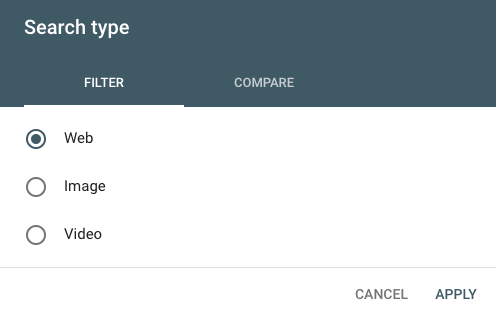

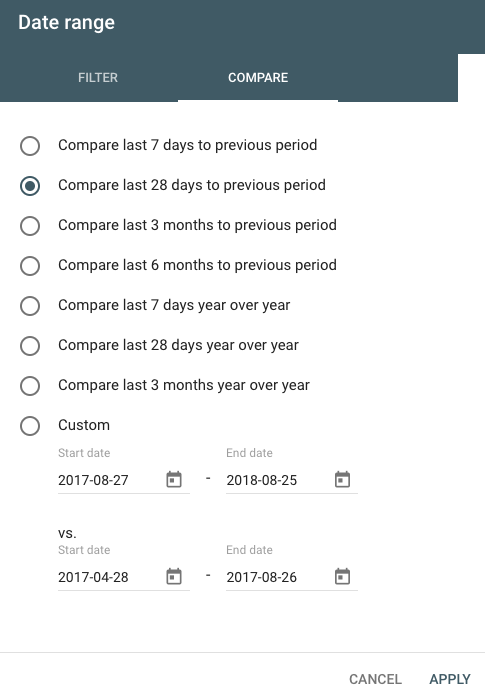


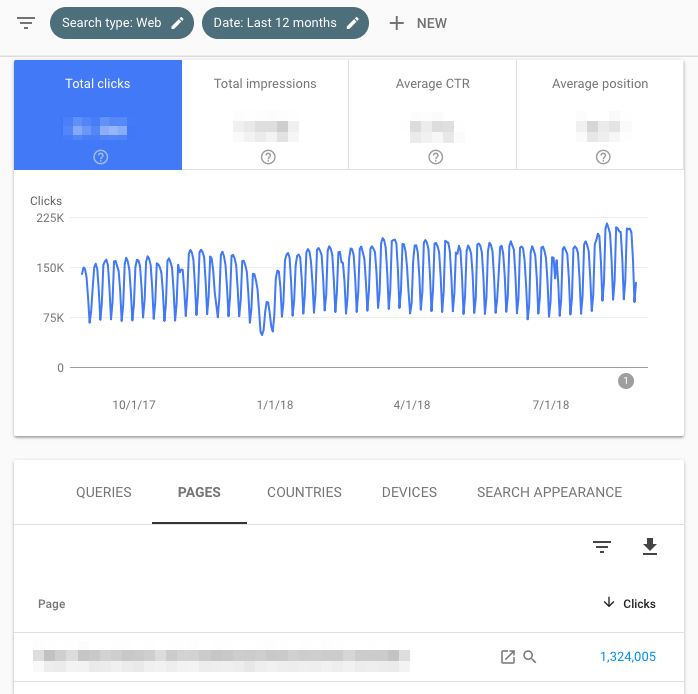
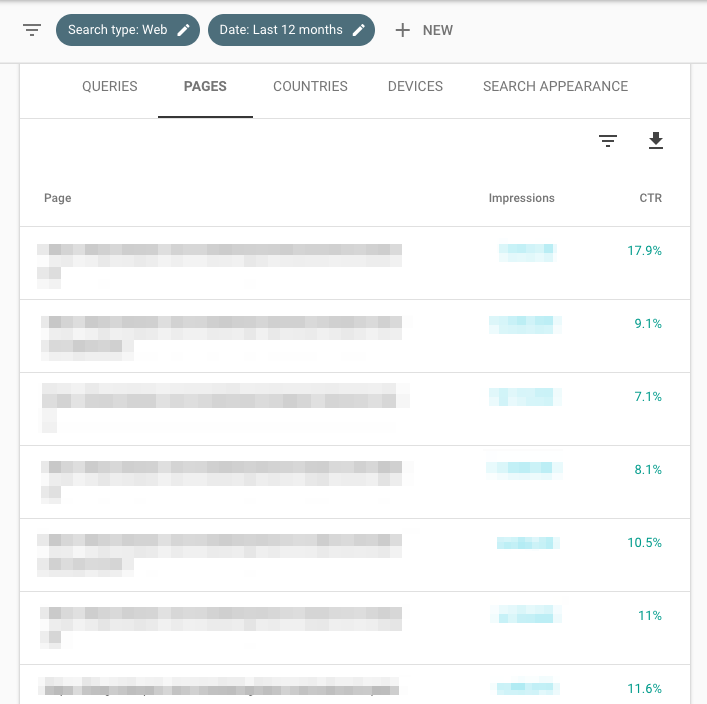
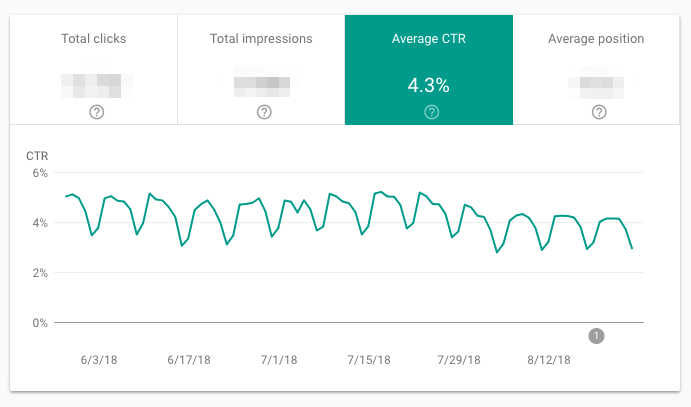
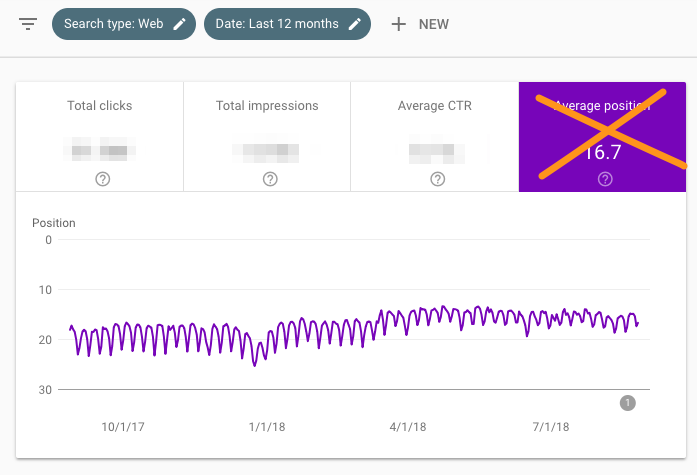
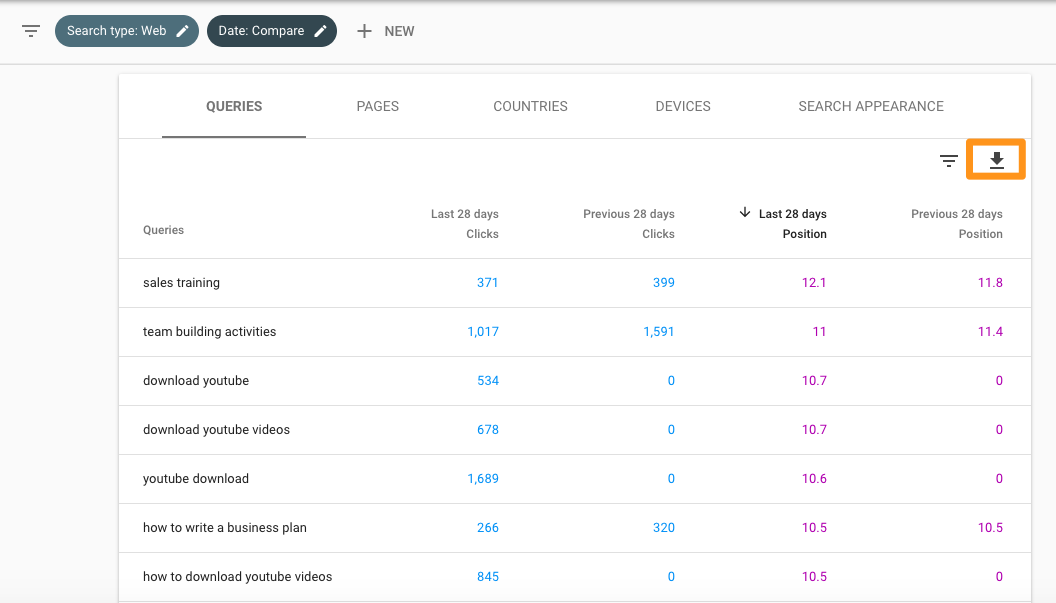
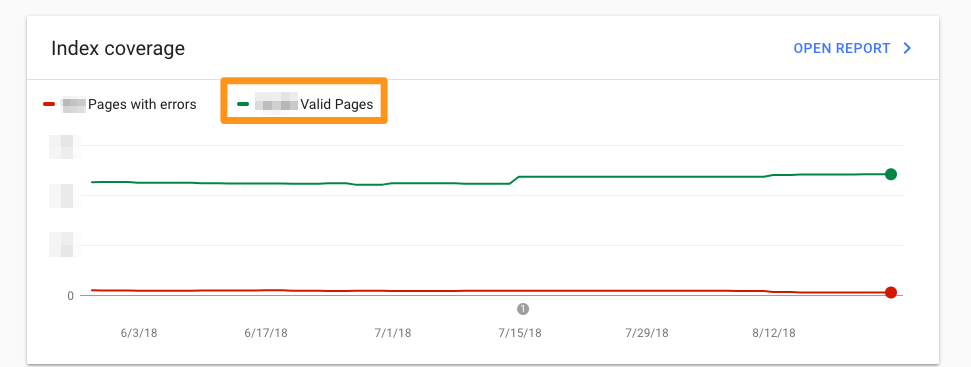
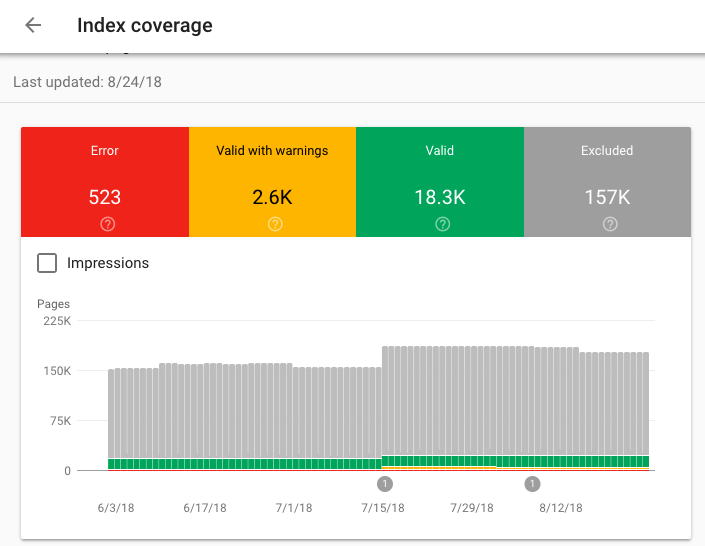
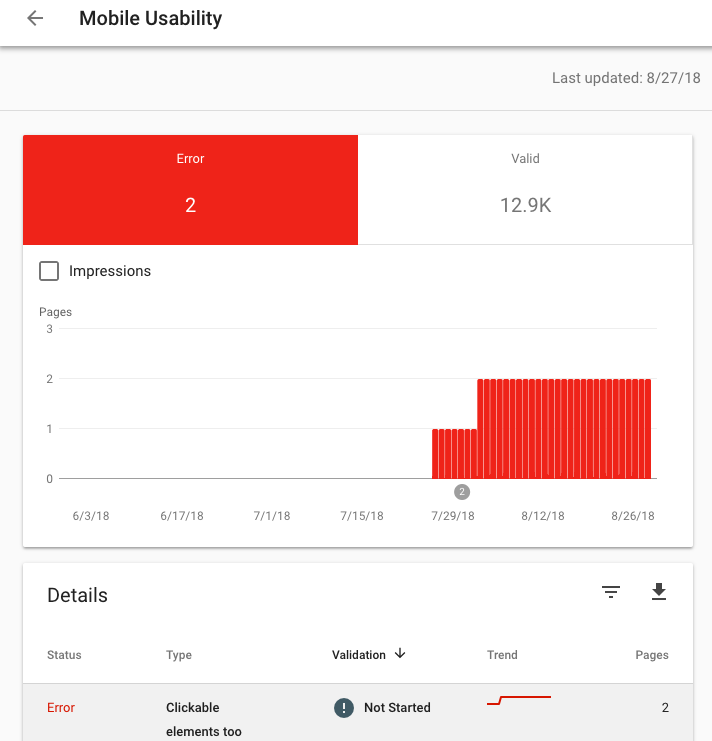
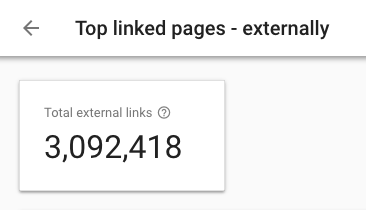
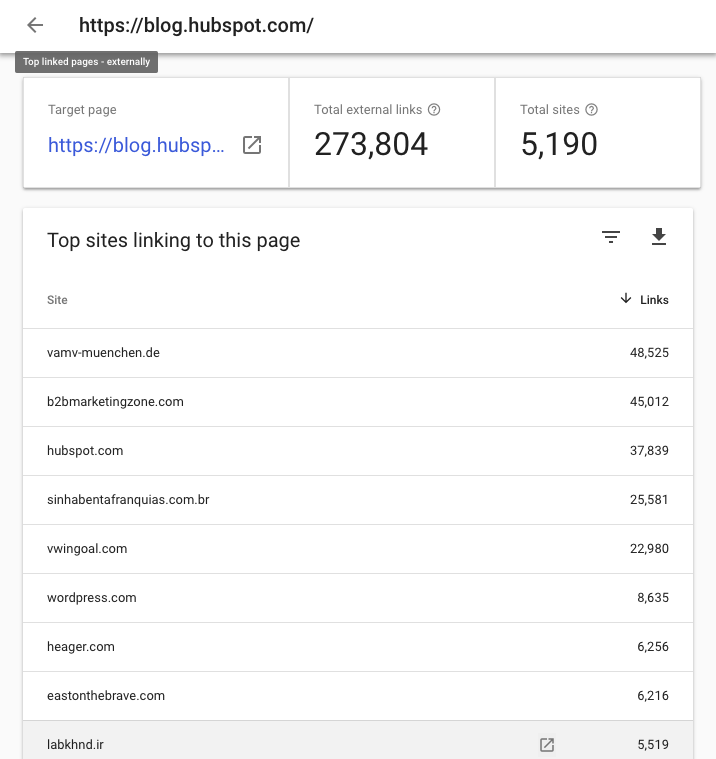
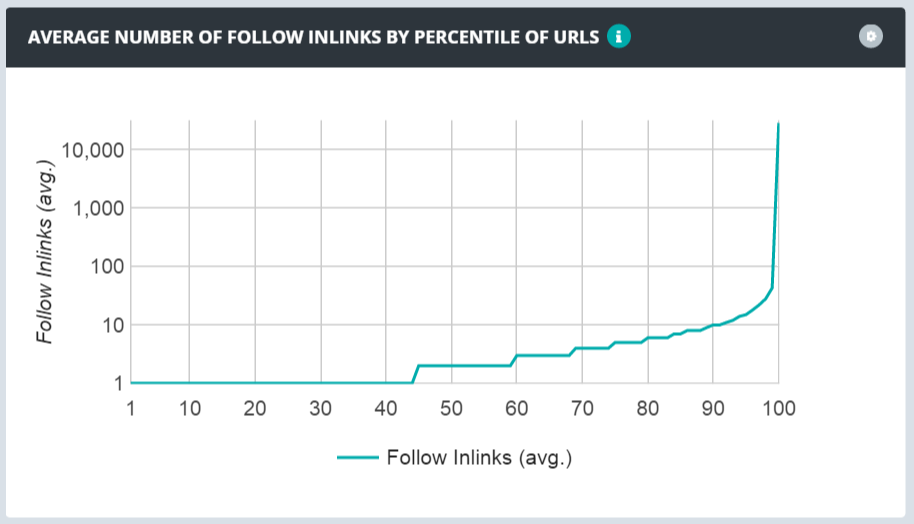
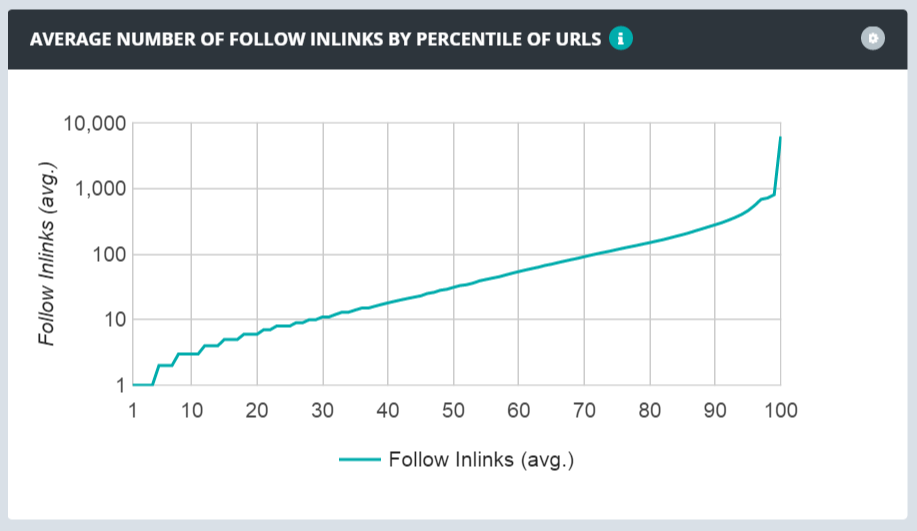
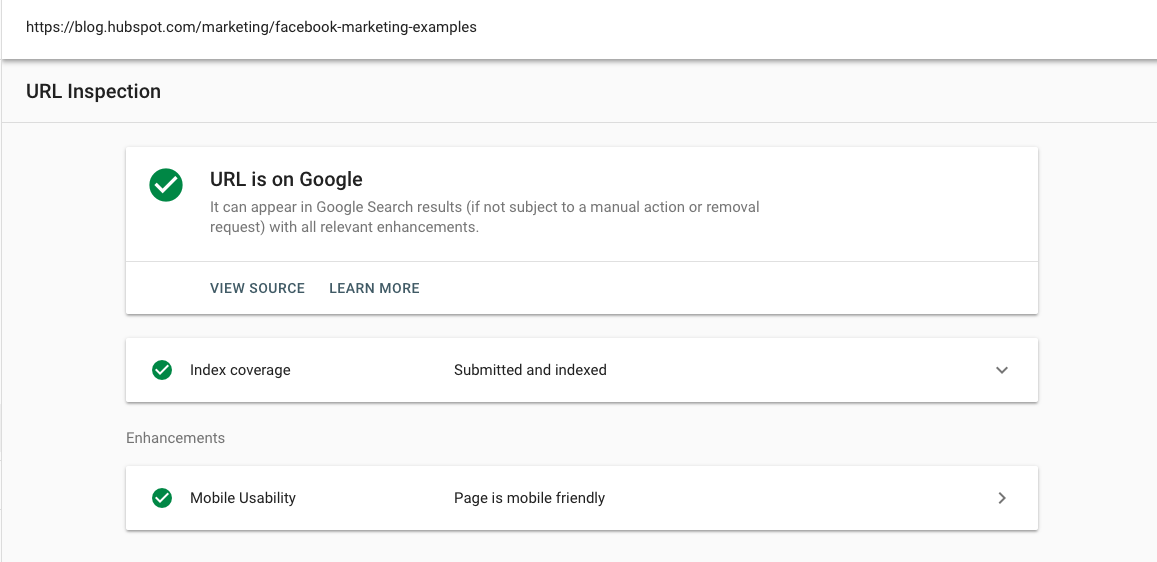
Comments
Post a Comment